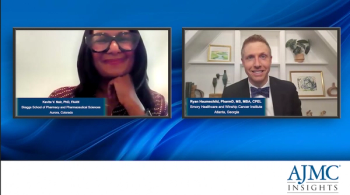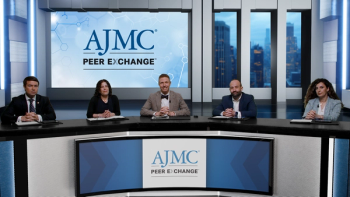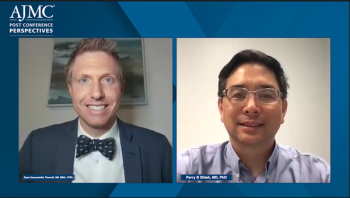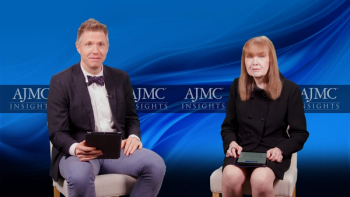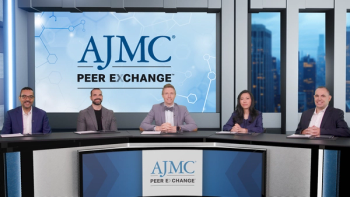
Panelists discuss how treatment access challenges require provider advocacy through peer-to-peer reviews and patient assistance programs, whereas cost-effectiveness evaluation focuses on time to specialist care, therapy duration, and quality-of-life outcomes.
